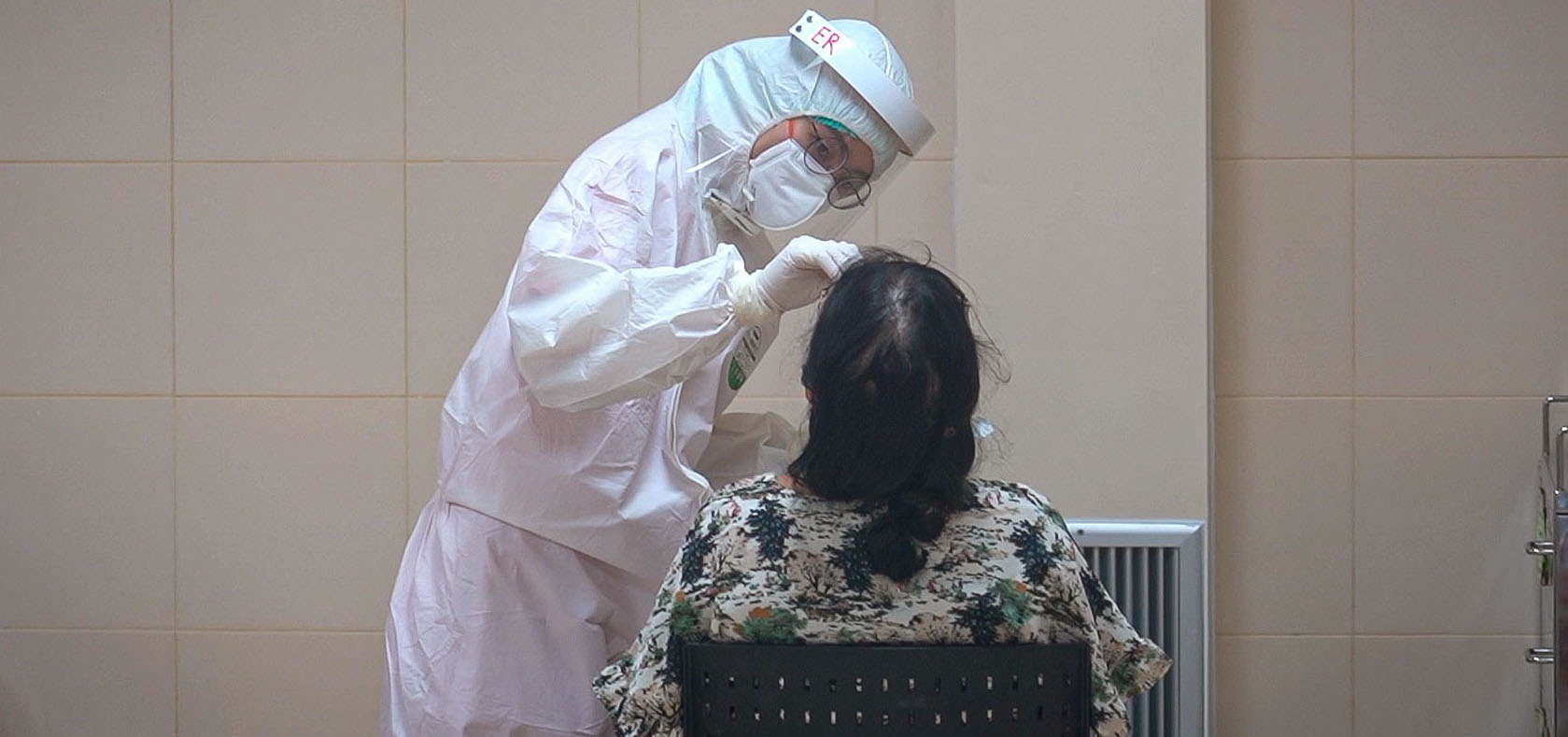Expert’s Take: The gender challenges in Asia and the Pacific that will dominate in 2022
Date:
Author: Sarah Knibbs

The coming year may not see the end of the pandemic, but it will give us a chance to start applying many of its lessons. With more and better data, we are getting a clearer picture of the impact on women and other vulnerable groups, and of structural changes that are long overdue. UN Women is poised to work with partners and stakeholders in 2022 to make sure the opportunities to bring about lasting change are not missed.
About the author

Sarah Knibbs, Officer-in-Charge for UN Women Asia and the Pacific. Photo: UN Women/Pairach Homtong
Sarah Knibbs is Officer-in-Charge for UN Women Asia and the Pacific. She has been working in the Asia Pacific region for the last 25 years, with a range of organizations including UN Women, UNFPA, DFID China, Save the Children Fund, VSO, and the Khmer HIV/AIDS NGO Alliance (KHANA). Her work has focused on gender, violence against women, HIV, youth issues, and sexual and reproductive health and rights. Sarah joined UN Women in 2014. She was initially based at Cambodia Country Office and moved to the UN Women Regional Office for the Asia Pacific in June 2020 where she is the Deputy Regional Director ai. Sarah is from the UK and studied History at Oxford for her first degree, later taking an MSc in Development Management specializing in Population and Reproductive Health at the University of Wales Swansea.
From the first days of the pandemic, lockdowns have brought a stark, unacceptable rise in gender-based violence; the shift to remote work and online learning has increased gender gaps in employment and education; and entrenched sociocultural norms have imposed vastly disproportionate care burdens on women.
With the full impact of recent variants still not fully documented, and experts warning of more waves and possible variants, we must brace for further lockdowns, the need for more support programmes and pressure on strained health care resources. It is urgent that we work to reduce the grossly disproportionate impact of these on women and other vulnerable groups.
How to best help violence survivors when travel restrictions and service closures cut off avenues of escape? How to ensure that economic recovery reaches everyone? How to be sure that the digitalization of work reduces rather than expands the gap in labour-force participation? In 2022 we have resources to move from simple awareness-raising to evidence-based analysis of these problems, thanks to improved data collection and analysis from the previous stages of the pandemic. We are already starting to quantify the unintentional consequences of some of the more reflexive response measures and to identify gaps in the safety nets. These discussions will lead to informed solutions and better outcomes for policymakers and better outcomes for women and girls.
Beyond the pandemic: progress in business, education and online for 2022
As we work towards these top-down improvements for gender equality, we are also going to see two broad trends among women in the workforce: more women in senior positions in both the private and the public sectors, and more women with the skills to participate in the digital economy.
Companies are already realizing that breaking gender barriers to the boardroom makes economic sense, as corroborated by more than 90 studies.[1] Almost 6,000 have signed up to the Women’s Empowerment Principles (WEPs) established by UN Women and UN Global Compact. Each of the seven WEPs offers comprehensive guidance on how to promote gender equality and women’s empowerment in the workplace, marketplace, and community.
Transformation is also coming to the public sector, where UN Women is helping ensure that decision-making processes are participatory, responsive, equitable and inclusive, including by strengthening cadres of diverse women political leaders and officials, both appointed and elected.
The improved digital skills will see more women entering the workforce, as trends such as video conferencing and remote working, accelerated by the COVID-19 crisis, are here to stay. But a disproportionate number of women still lack basic access to the Internet, as a digital gulf remains.
The disparity extends beyond a lack of access. Women and girls often do not have access to the same quantity or type of education as men and boys, effectively cutting them off from many opportunities and even entire professions.
UN Women is working to ensure that women and girls are able to take advantage of developing technologies. Across the region, we are addressing women’s under-representation in vocational fields and in the subjects of science, technology, engineering and maths (STEM), through mentoring, training and increasing access to education.
Leaving no one behind means precisely that
A significant part of our work is ensuring that no vulnerable group falls out of awareness despite the short attention span of media cycles. High-profile crises attract coverage and resources, but we need to also ensure longer-term support for complex, slow-burning challenges if we are to live up to the mandate of “leaving no one behind”.
Women are vulnerable to a range of connected factors including the pandemic, climate change, conflict, and a long history of sociocultural norms. Particular communities have specific vulnerabilities, such as trafficked women, migrant workers, LGBT+ individuals and people with disabilities. And every area that UN Women Asia and the Pacific has a presence in, from Afghanistan to Viet Nam has distinct, contextually vulnerable populations that continue to struggle in the midst of multilayered crises.
New crises will inevitably draw our focused attention in 2022. But leaving no one behind means making sure our attention still encompasses those vulnerable groups that the spotlight has moved on from.
[1] One by the World Bank in 2019 found that, among more than 1,000 South-East Asian companies, those with more than 30 per cent of women on the board performed better financially than those with less, and much better than those with none.